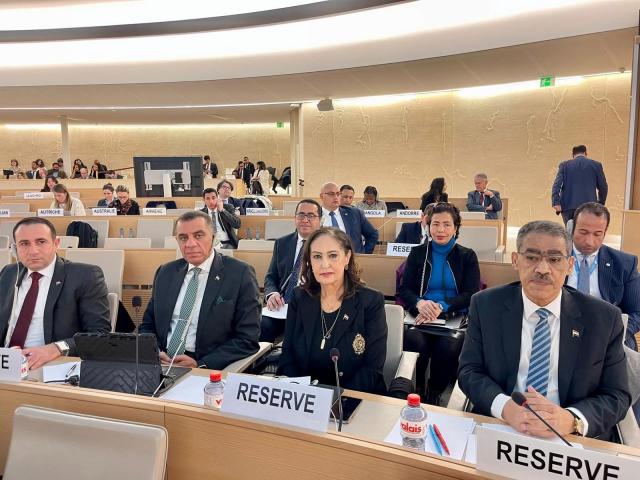
OHCHR Urges Egypt to Take Specific and Clear Measures to Implement UPR Outcomes
Press Release
The Egyptian Initiative for Personal Rights (EIPR) welcomes the United Nations Office of the High Commissioner for Human Rights’s (OHCHR) communication to the Egyptian government following the adoption of the outcomes of Egypt’s fourth Universal Periodic Review (UPR) by the Human Rights Council. In this review, Egypt received human-rights reform recommendations from 137 States.
EIPR supports the observations and guidance contained in the OHCHR communication, which outline priority areas and concrete measures to address persistent human-rights violations in Egypt, particularly in the fields of criminal justice, restrictions on civic space, social expenditure, and women’s right; in addition to the reiteration of its call for reexamining the new Code of Criminal Procedure in line with international obligations.
According to OHCHR, Egypt received 343 recommendations during its fourth review and agreed to implement 265 of them, around ten percent fewer than the rate of acceptance in the previous review in 2019.
OHCHR’s communication urged Egypt to review the definition of torture in accordance with the Convention against Torture, and the definition of terrorism and counter-terrorism legislation in line with international standards. It also called upon the Egyptian government to end practices of enforced disappearance, torture, and ill-treatment, and the ensure the effective oversight of all places of detention .
The letter further urged the government to fulfill its commitment to reduce the number of crimes punishable by the death penalty and ensure that this punishment is applied only to “the most serious crimes,” consistent with its international obligations, and encouraged Egypt to move towards the full abolition of the death penalty.
The letter referred to the new Draft Code of Criminal Procedure and reiterated its call to the Egyptian government to reconsider the law in its entirety to ensure its consistency with Egypt’s international obligations. However, this recommendation was ignored by the government and the House of Representatives, when the parliament voted last month for the second time on limited amendments to the law that ignored fundamental constitutional guarantees of the right to defence, even in the few articles that were amended.
While the OHCHR took positive note of the release of several individuals charged in terrorism-related cases and the removal of some names from terrorism lists, it simultaneously stressed that such partial improvements do not change the reality of the continued broad use of terrorism-related charges against human-rights defenders, lawyers, and journalists.
The UN human rights office urged the Egyptian Government to ensure that human rights defenders and civil society actors and organisations can operate safely and exercise their rights to freedom of expression, association, and peaceful assembly without fear of persecution, and to release all those arbitrarily detained for peacefully exercising these rights.
The OHCHR also took note positively of certain steps taken by the Egyptian government to improve the situation of women’s rights, such as providing legal aid to women victims of violence and pursuing the implementation of the National Strategy for the Empowerment of Egyptian Women 2030. Nevertheless, it stressed the need for further progress through the adoption of a comprehensive law criminalising all forms of violence against women, including domestic violence and marital rape, and encouraged Egypt to fulfil its commitments to address inequality, particularly by increasing budget allocations for health, education, and social protection .
EIPR calls upon the Egyptian government to adopt and publish an executive plan to implement the UPR recommendations, including a clear timeframe, specific procedures, and measurable targets. EIPR believes that this is the only way to ensure that UPR reviews do not turn into public relations exercises in which the government presents a rosy picture of an alternative reality, without taking genuine steps to guarantee the minimum rights of Egyptians on the ground.
EIPR has actively engaged with the current UPR cycle on Egypt at all its stages. It submitted a comprehensive report providing an overview of the deterioration of human rights conditions in Egypt between 2019 and 2024, and participated in four joint reports addressing:
(1) the crisis of women’s and girls’ rights in Egypt;
(2) violations against and restrictions imposed on human rights defenders;
(3) violations of freedom of expression, particularly in the digital sphere; and
EIPR also issued a commentary on the government’s report to the UPR titled “A Parallel Reality.”



